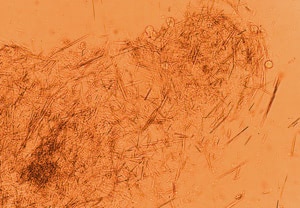What is a gout attack?
The first gout attack usually occurs at night, triggered by a sudden increase in the uric acid level, for example from eating a great deal of meat or drinking a lot of beer. Gout is painful. The pain is caused by inflammation and swelling in the affected areas. Gout flare-ups can last hours or several days with severe pain.
The patient wakes up with very severe pain in a single joint, usually the big toe. An untreated gout attack can last several days. The inflammation can even be seen from the outside in the form of reddening and swelling of the surrounding tissue.
Signs of a gout attack in a joint are:
- The affected joint is very painful;
- The affected joint might be red, swollen and hot to touch;
- The affected joint might be extremely sensitive to the touch. Other symptoms such as fever, headache, rapid heart rate or weakness may occur.
How long can a gout attack last?
If left untreated, a gout attack can last from seven to 14 days, until the inflammation reduces and the pain passes. The skin over the affected joint is usually itchy and peels off.
Where can a gout attack occur?
Different parts of the body can be affected. In the early stages, gout damages joints like the:
Additionally, it affects soft tissues as well as the kidneys and other organs like the heart or intestines.
What should you do if you experience a gout attack?
If you believe you are having a gout attack or experiencing gout symptoms, consult a physician. The doctor will prescribe you medication suitable to alleviate the pain and control the disease. Since gout attacks often occur at night, do not hesitate to visit the medical emergency service.
How can you handle a painful gout attack?
Gout attacks happen unexpectedly, are usually very painful and might be triggered by a purine-rich meal (like meat or seafood), heavy drinking (beer and spirits), unaccustomed exertion or an infectious disease. You should act quickly if you are woken up during the night or early morning by a sensitive, swollen, painful joint. The following points are steps you can take for gout pain relief.
Pain relief: What can you do?
Take medicine
Start treatment immediately with a painkiller The use of NSAIDs in patients over the age of 65 years should be avoided, particularly in the case of significant kidney problems and in elderly patients with a previous history of stomach ulcers and bleeding.
Continue taking your prescribed medication
even during a new gout attack and inform your doctor as soon as possible.
Cool down
Applying a cool pack wrapped in a towel to the painful joint may help ease pain and inflammation. Repeat this 20- to 30-minute cooling process several times a day.
Try to rest and get a walker
If your foot is affected, elevate it with pillows (higher than your chest). This can help to reduce the swelling.
Walking with help or a cane during an acute gout attack can help keep pressure off your painful joint.
Drink plenty of fluids
Staying hydrated helps flush out uric acid (the cause of your joint pain) and prevent kidney stones. You should aim to drink two litres of fluids a day, at least half of which should be water.
Consult your doctor
Getting treatment within the first 24 hours of the attack is important. The length and severity of the attack can be reduced if treated early.
Change your diet
Cut out purine-rich foods such as shellfish, red meat, sweetbreads and gravies from your diet.
Avoid alcohol, especially beer
It is important to avoid alcohol, especially beer, which contains high levels of purines. Alcohol also interferes with the removal of uric acid from your body.
Try to relax
Stress can aggravate gout, so try to keep calm and relax: Watch a film, talk to a friend, read a book, listen to music or try meditating.

